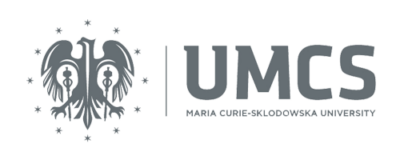Volume 2023 – Issue 1
Teaching English with Technology, 23(1), 2023, 1-2, https://www.tewtjournal.org
FROM THE EDITORS
by Christopher Alexander and Jarosław Krajka
University of Nicosia, Cyprus/ Maria Curie-Skłodowska University, Poland
alexander.c @ unic.ac.cy & jarek.krajka @ gmail.com
The Journal of Teaching English with Technology (TEWT) in 2023 “Boldly Goes” forward with three of its new 2023 initiatives having already been realised!
1. Focusing on technologies of the Future
In this era of quickly developing AI-technologies, TEWT has announced it intends to focus on publishing more research that is aimed at understanding how using a ‘human with AI’ approach might lead to greater teaching and learning success. TEWT therefore in future will be fast-tracking relevant and well-researched AI-related studies (e.g. ChatGPT-related) for publication. Moreover, even though the use of the Metaverse in education is still in its early stages, it has the potential to revolutionize the way we learn and teach in the future. As such, TEWT believes it is important to publish suitable research that is focused on how the affordances of an immersive and interactive virtual Metaverse environment might lead to greater teaching and learning success. The Metaverse arguably provides a unique opportunity for educators and learners to experience a new form of education that could be more engaging, interactive and personalised than traditional classroom-based learning.
2. TEWT has moved to Scholastica!
TEWT has implemented a new editorial system, Scholastica, which is likely to considerably facilitate the publishing process, from the moment of submission through reviews, discussions and copy-editing to the final production. All TEWT reviewers have been invited to use Scholastica. All correspondence with reviewers and authors, with the very reviews, will be conducted only via Scholastica. TEWT therefore also has an additional Scholastica webpage Teaching English with Technology (scholasticahq.com)
3. TEWT is a member of Crossref (https://www.crossref.org/)
All new TEWT Issue articles now use the Digital Object Identifier (DOI) system. A DOI is a unique number made up of a prefix and a suffix separated by a forward slash.
Issue 1, 2023, comprises six papers from authors in well-known universities in Vietnam, Australia, Japan, Iran, the United States of America, China and New Zealand.
Paper one explores the potential of VR in enhancing authentic learning for EFL tertiary students in Vietnam. The authors are Diem Thi Ngoc Hoang of Thai Nguyen University, Vietnam, Nicola F. Johnson of Edith Cowan University, Australia, and Maggie McAlinden of Edith Cowan University, Australia. The results showed VR has the potential to enhance many of the ten attributes of Herrington et al.’s (2010) authentic tasks.
The second paper describes large language model-based artificial intelligence in the language classroom and presents some practical ideas for teaching. Its authors are Euan Bonner, Ryan Lege and Erin Frazier of Kanda University of International Studies Chiba, Japan. After giving specific examples and explanations, the paper discusses how this technology can provide teachers with new innovative ways to streamline the teaching process to focus on learner needs.
The next paper presents quantitative research on gamifying vocabulary acquisition and retention in virtual reality. The authors are Muleyke Sahinler Albayrak, Julian Chen and P. John Williams of Curtin University, Australia. Marked differences were found between pre- and post-tests and pre- and delayed post-tests suggesting that the gamified VR environment can stimulate content-based vocabulary acquisition and enhance its retention.
The fourth paper, written by Hanieh Shafiee Rad of Shahrekord University, Iran, by analysing flipping in a microlearning way, seeks to show its effects on EFL learners’ achievement and motivation in a grammar course. Findings suggest that the use of microlearning, flipped, and microflipped teaching/learning can be considered as an alternative model of teaching, as opposed to the traditional method, to motivate EFL students to better learning.
Paper five looks at lexical collocational instruction in EAP writing via COCA. The authors, John I. Liontas of University of South Florida, United States of America, Imelda V. Bangun of Keiser University Flagship Campus, USA, and Siying Li of Xi’an International Studies University, People’s Republic of China, proved that when students are given explicit instruction on how to utilize COCA to identify lexical collocations and their use in various contexts, both their lexical collocational competence and writing performance improves and, furthermore, these improvements correlate with each other.
The final paper of Issue 1 2023 is written by Dilani S. P. Gedera of Auckland University of Technology, New Zealand, and Anthea M. Fester of Waikato Institute of Technology Hamilton, New Zealand. This paper explains the process of integrating e-portfolios to facilitate collaborative learning and reflection in an EAP context. The findings demonstrate that learners appreciate the affordances of e-portfolios and collaborative nature of assessment tasks in them.
We wish you good reading!


